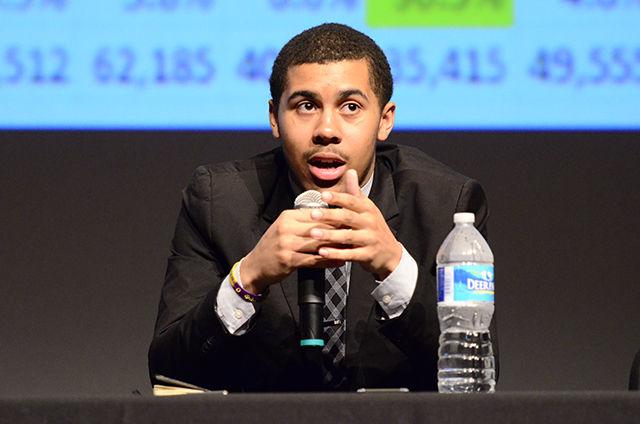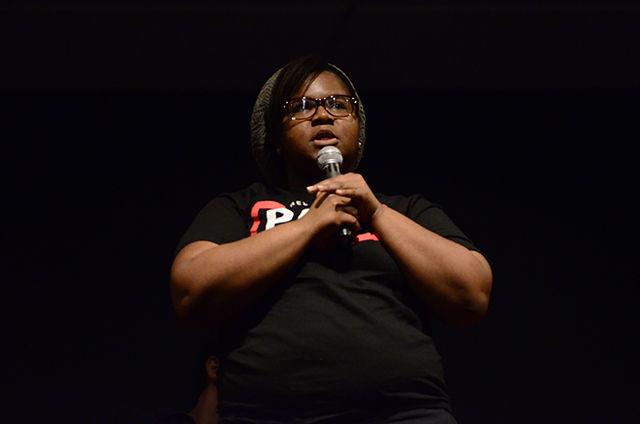Student Government hosted a racial climate town hall in January introducing four action items to help improve racial climate and cultural competency on campus. Plans are underway to implement the four action items, some starting as soon as next semester.
These action items propose various diversity trainings, leadership roles and a new non-academic misconduct system for NC State.
Mike Mullen, the vice chancellor and dean of the Department of Academic and Student Affairs, expressed his enthusiasm for these diversity trainings and their prospects for improving campus climate.
“Education is the very first positive step toward changing behavior, so we can have a broader and stronger education program and expose more people to more ideas,” Mullen said.
Action Item One
The goal of the first action item is to implement mandatory diversity training for student organizations on campus. A diversity and cultural competency training will be implemented at this year’s Student Organizations Leadership and Engagement program in September, according to Moriah Barrow, director of diversity outreach for Student Government.
SOLE is an annual program that requires all student organization leaders to attend a series of trainings together to improve upon leadership skills. According to Barrow, Student Involvement has made an agreement with Student Government that requires a diversity and inclusivity training for this year’s SOLE.
“The goal overall is to make sure that all of our student leaders are competent and equipped with the skills to be able to accommodate anyone interested in their organization, so that no one is left out,” Barrow said.
Action Item Two
The second action item is to provide diversity training at New Student Orientation. Currently, a diversity and inclusivity video is in the works to be presented at this summer’s orientation, according to Darryl Johnson, associate director of diversity outreach for Student Government.
Johnson hopes that the orientation diversity trainings will include something more extensive than a video and be more engaging in years to come. He said the reason for a video this year is due to feasibility and time restraints.
While the first two action items are on track to be implemented in the coming months, action items three and four are still in the process of being organized.
Action Item Three
The idea for the third action item was to create an honor system based off what was described as an existing honor system at UNC-Chapel Hill that deals with hateful speech and non-academic student misconduct. However, after further research, it has come to student leaders’ attention that this honor system does not exist at UNC-Chapel Hill, according to Kamrie Risku, a UAB chair and a sophomore studying political science.
“Student leaders and the administration — we both have the same goals where they do generally care about diversity and racial climate,” Risku said. “I think that as long as we continue to work together, instead of working against each other or students working without them, that it will go well and that we can expect to start seeing these.”
Because Risku and other student leaders working on this action item have no established system to use as a model, they are facing difficulty in deciding how to create a system that deals with discriminatory speech without violating students’ right to freedom of speech.
“The understanding of what might hurt someone or may be hateful in some way is really going to vary from person to person,” said Justine Hollingshead, chief of staff for the Division of Academic and Student Affairs. “So, we need to find a way where we have an environment that is welcoming and has some basic expectations, but not limiting a person’s freedom of speech and freedom of thought … when it comes into practical everyday operating this, it can be very challenging.”
Action Item Four
The fourth action item proposes the hiring of an Asian-American assistant director in Multicultural Student Affairs.
“Asian-American students make up approximately 5 percent of the student population at NC State,” said Nina Ondona, a representative of Asian Students in Alliance and a senior studying mechanical engineering, at the first racial climate town hall in January. “This makes us the second largest racial minority group here, but the only one without an assistant director in Multicultural Student Affairs.”
MSA has said that it cannot create this position due to the university being unable to give financial resource support, according to Risku.
Ondona said Tracey Ray, assistant vice provost for student diversity at NC State, hopes to see a graduate assistant for Asian-American students in MSA as early as next fall. However, there is no guarantee that adding this position will be possible.
“We’d like to see a stronger emphasis on cultural competence and dealing with cultural conflict,” said Paul Nolan, recently inducted student body president and a junior studying materials science and engineering.
Nolan explained his plans to address cultural competency during his 2016– term.
“We intend to open up talks on implementing a mandatory course on student success, which will cover topics like cultural competency, personal identity, financial literacy, understanding LGBTQI and the gender spectrum, and other relevant topics,” Nolan said in an email.
Students fill out information at one of the booths at the On-Campus Job Fair. The event, which was hosted on Tuesday, advertised jobs specifically located on campus for new students. Representatives from several on-campus employers had booths in the Coastal Ballroom in Talley Student Union to hire new workers.









